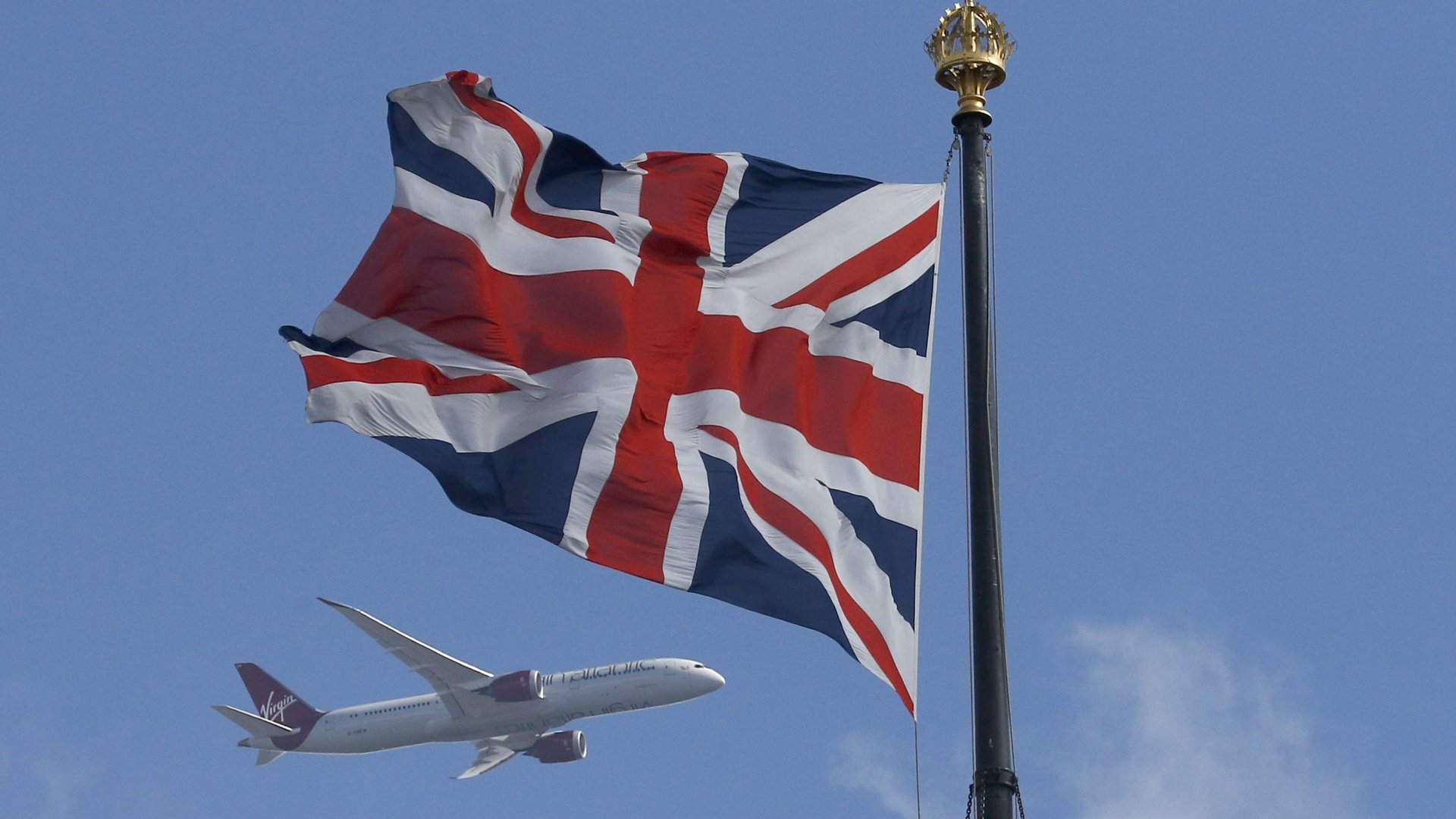American regulators don’t think British airlines are so special without the EU
American aviation officials aren’t moved by the so-called “special relationship” between the US and UK: There will be no preferential treatment for British airlines flying to the US after Brexit, unless a separate deal is negotiated.


American aviation officials aren’t moved by the so-called “special relationship” between the US and UK: There will be no preferential treatment for British airlines flying to the US after Brexit, unless a separate deal is negotiated.
The Financial Times (paywall) reported that during secret talks between US and UK negotiators in January, American officials offered a bilateral agreement to replace the current Open Skies agreement that governs air traffic between EU member states and the US. This is a problem for the three largest UK transatlantic carriers—British Airways, Virgin Atlantic, and Norwegian UK—because it requires them to have majority ownership and control from their country of origin, rather than EU-based majority ownership, as the rules currently require.
Traffic between the UK and US is big business—it accounts for a more than a third of all transatlantic flights. Negotiators will continue to try to reach a better deal before the UK officially leaves the EU in March 2019, but time is short. Airlines need clarity well ahead of time so they can continue to publish schedules and take bookings up to a year in advance.
As one person attending the talks told the FT: “You can’t just scratch out ‘EU’ and put in ‘UK.’” What’s more, given the US’s newfound illiberal attitude to trade, British negotiators go into talks with Washington during “the worst time to be negotiating” on matters of international co-operation.
Despite UK transport secretary Chris Grayling’s insistence last year that “rapid progress” is being made, Brexit has been causing turbulence throughout the aviation industry. Budget airline Ryanair has been leading the way on worst-case-scenario preparations, prominently planning for a scenario where a deal is not reached and planes are potentially grounded, since there is no other framework to fall back on, like with industries governed by the WTO. In addition, aircraft manufacturer Airbus—which employs 15,000 people in the UK—is threatening to reconsider Britain as a “home nation” for its operations unless there is more clarity on post-Brexit customs rules.